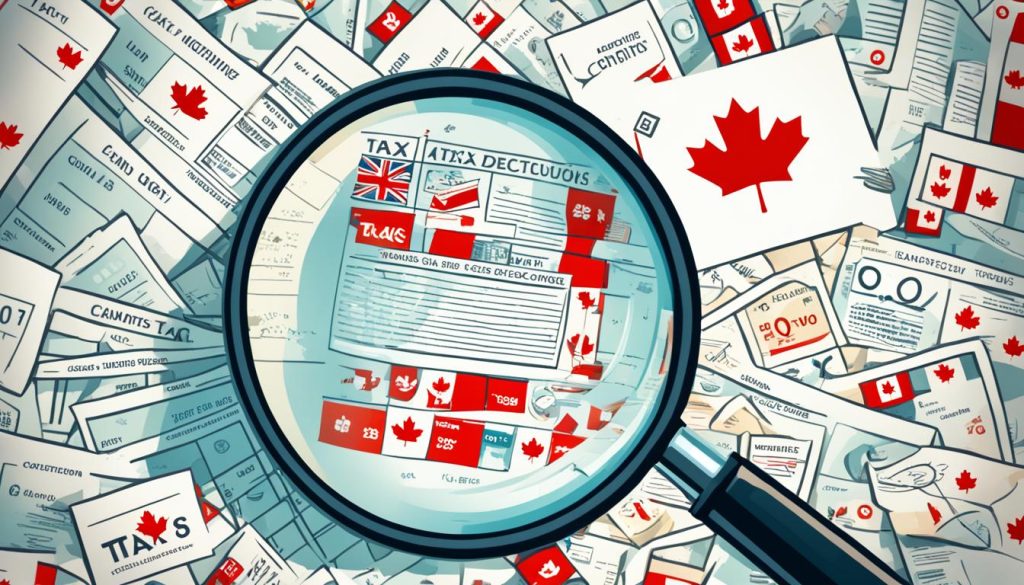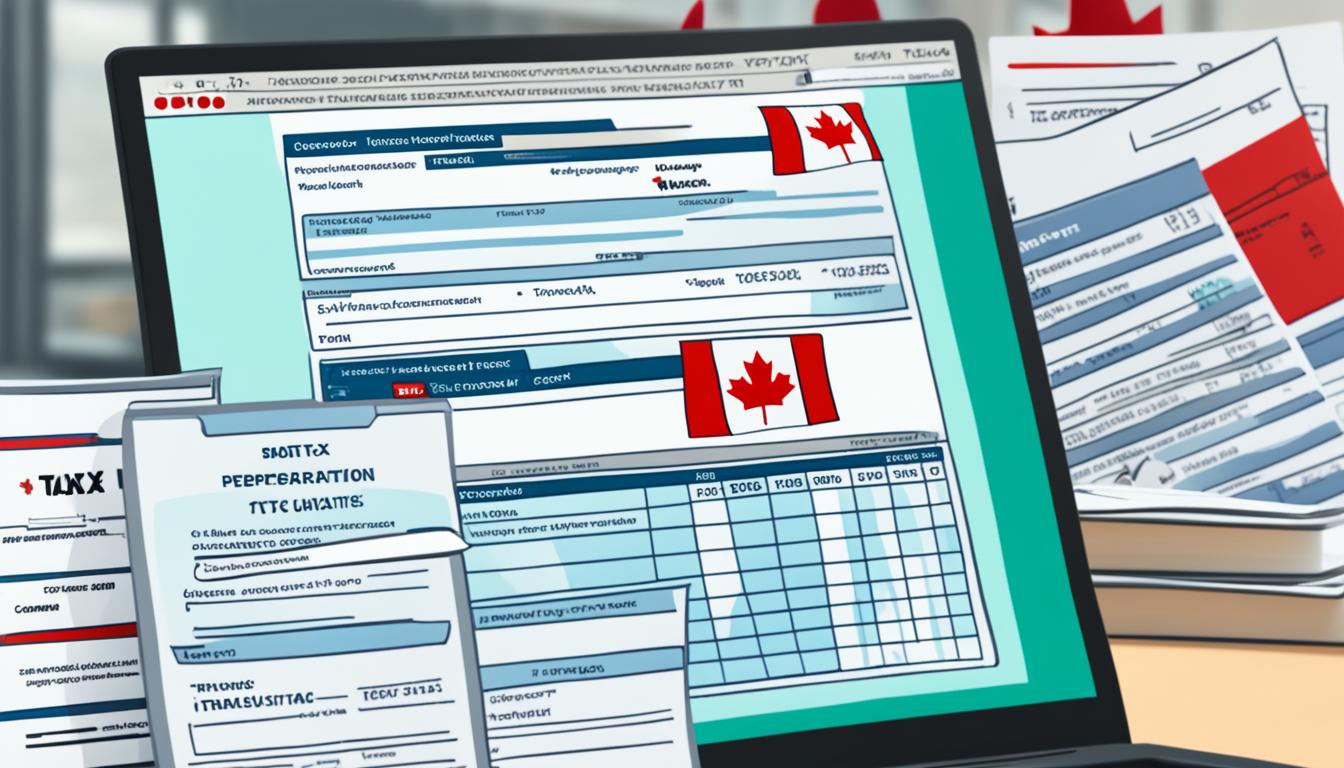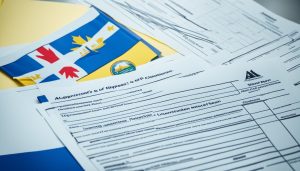Filing taxes can be a daunting task for many individuals, especially when it comes to navigating the complex Canadian tax system. With an abundance of rules, regulations, and requirements, it’s no wonder that so many people feel overwhelmed at the thought of filing their taxes in Canada. However, understanding the process and being aware of the various deductions and credits available can go a long way in making the experience a little less stressful.
In this article, we will guide you through the process of how to file taxes in Canada, providing you with essential information, tips, and resources to ensure that you are well-prepared to navigate the Canada Revenue Agency tax instructions and maximize your tax deductions as a Canadian resident. Whether you’re a first-time filer or a seasoned taxpayer, this article aims to simplify the process and help you make the most out of tax season. So let’s dive in and demystify the world of Canadian taxes together!
How to File Taxes in Canada?
Filing taxes in Canada can initially seem overwhelming, but with a step-by-step approach, it becomes a manageable task. Understanding the tax deadlines, such as the April 30th deadline for personal income tax returns and the June 15th deadline for self-employed individuals, is crucial for timely compliance. By gathering necessary documents, choosing the appropriate filing method – either electronically through CRA-approved software or by paper – completing the tax return accurately, and submitting it to the CRA, individuals can navigate the process effectively.
Keeping track of deductions and credits like childcare expenses, medical costs, tuition fees, and charitable donations can optimize tax returns. For newcomers, seeking professional guidance can ensure accurate filing, while self-employed individuals should maintain meticulous records to report business income correctly. With attention to detail, organization, and potential assistance from tax professionals or certified software, filing taxes in Canada can be a smooth and rewarding experience, maximizing benefits and minimizing stress during tax season.
Tax Deadlines in Canada
It’s important to be aware of the tax deadlines in Canada to ensure you file your taxes on time and avoid any penalties or late fees. For personal income tax returns, the deadline is usually April 30th of each year. However, if you or your spouse/partner have self-employment income, the deadline is extended to June 15th. It’s important to note that even if you don’t have any income to report, you should still file a tax return to gain access to benefits and information. If the deadline falls on a weekend, it is typically extended to the following Monday.
Understanding the tax deadlines in Canada can help you stay organized and plan ahead. Filing your taxes on time ensures that you meet your obligations as a taxpayer and avoid unnecessary hassle or penalties. It’s essential to mark these dates in your calendar and start gathering the necessary documents well in advance to avoid any last-minute rush.
Here is a breakdown of the tax deadlines in Canada:
| Type of Tax Return | Filing Deadline |
|---|---|
| Personal Income Tax Return | April 30th of each year |
| Self-Employed Income Tax Return | June 15th of each year |
It’s crucial to prioritize meeting these deadlines to avoid any penalties or interest charges. Filing your tax return on time not only ensures compliance with the law but also allows you to access various tax benefits, such as potential refunds or credits.
Remember, even if you don’t owe any taxes or have any income to report, it’s still important to file a tax return. Filing a tax return helps you maintain your eligibility for government benefits, such as the Canada Child Benefit, the Goods and Services Tax/Harmonized Sales Tax (GST/HST) credit, and the Canada Workers Benefit.
Stay proactive and plan ahead to meet the tax deadlines in Canada. By doing so, you can stay on top of your tax obligations and make the filing process smoother and more manageable.
The Tax Filing Process in Canada
The tax filing process in Canada can seem complex, but it can be streamlined if you follow the right steps. Here’s a breakdown of the process:
- Gather the necessary documents: Before you start filing your taxes, make sure you have all the required documents. This includes T4 slips from your employers, receipts for expenses, and any other relevant income information.
- Choose your filing method: In Canada, you have the option to file your taxes electronically or by paper. If you prefer electronic filing, you can use CRA-approved tax software, which offers online, downloaded, or installed options. Alternatively, you can choose to file a paper return by mail.
- Complete your tax return: Once you have gathered all the necessary documents and chosen your filing method, it’s time to complete your tax return. Whether you are using tax software or filing a paper return, follow the instructions provided and ensure that all the required information is included.
- Submit your tax return: After completing your tax return, you need to submit it to the Canada Revenue Agency (CRA). If you are filing electronically, you can submit your return online. If you are filing a paper return, make sure to mail it to the correct CRA processing center.
- Receive your Notice of Assessment: Once the CRA receives your tax return, they will process it and send you a Notice of Assessment. This document outlines their conclusions and provides information about your tax situation. Make sure to review it carefully and keep it for your records.
By following these steps, you can navigate the tax filing process in Canada with ease. Remember to keep track of all your documents and seek professional advice if needed. Now let’s take a look at some tax deductions and credits available to Canadian residents.
Your Tax Filing Checklist
| Documents | Software | Submission |
|---|---|---|
| T4 slips | CRA-approved tax software | Online or by mail |
| Expense receipts | Online, downloaded, or installed options | CRA processing center |
| Income information |

Tax Deductions and Credits in Canada
When it comes to filing your taxes in Canada, understanding the various tax deductions and credits available can make a significant difference in reducing your tax liability and increasing your refund. By taking advantage of these deductions and credits, you can optimize your tax return and keep more of your hard-earned money.
There are several common deductions and credits that Canadian citizens can claim to lower their taxable income. One of the most popular deductions is childcare expenses. If you have children under the age of 16 and pay for childcare, you may be eligible for deductions to offset these costs.

Medical expenses
are another category that can qualify for deductions. Eligible medical expenses may include prescription medications, dental services, and certain medical devices. By keeping track of your medical receipts, you can potentially lower your taxable income through these deductions.
If you’re pursuing higher education, tuition fees can be claimed as tax credits. Whether you’re a student or supporting a dependent, claiming these credits can help reduce the financial burden of educational expenses.
Charitable donations are not only a way to support causes you care about; they can also provide tax benefits. By claiming your charitable donations on your tax return, you may be eligible for tax credits that can lower your tax liability.
It’s important to keep track of all your relevant receipts and documentation to support your claims. This ensures that you have the necessary evidence in case of an audit or review by the Canada Revenue Agency (CRA).
In addition to these common deductions and credits, various tax credits and benefits are available for specific groups within the Canadian population. For example, seniors may be eligible for tax credits related to pension income, while students can claim tax credits for tuition and education expenses.
Individuals with disabilities and their caregivers may qualify for disability tax credits and other benefits to help ease financial burdens. These credits can provide much-needed support and alleviate some of the costs associated with disabilities.
Summary of Tax Deductions and Credits in Canada
| Deductions and Credits | Eligibility |
|---|---|
| Childcare expenses | Parents with children under 16 |
| Medical expenses | Individuals with qualifying medical costs |
| Tuition fees | Students or individuals supporting a dependent’s education |
| Charitable donations | Individuals who make donations to registered charities |
| Seniors tax credits | Individuals over a specific age |
| Disability tax credits | Individuals with disabilities and their caregivers |
By understanding and maximizing these deductions and credits, you can optimize your tax return and potentially reduce your tax liability or receive a larger refund. It’s always advisable to consult with a tax professional or use certified tax software to ensure you’re taking full advantage of all available tax benefits.
Filing Taxes as a Newcomer to Canada
If you are a newcomer to Canada, understanding your tax obligations and the process of filing taxes is essential. As a Canadian resident, it’s important to be aware of the newcomer tax-filing date and ensure you file your taxes by the deadline.
The newcomer tax-filing date refers to the deadline for filing your first tax return in Canada. Generally, you should file your first tax return by the deadline for the year when you became a resident for tax purposes.
For example, if you moved to Canada in July 2023, you would file your first tax return by the end of April 2024. Filing your taxes as a newcomer may require additional documentation, such as information about your income earned before arriving in Canada.
To ensure accurate and timely filing, it is recommended to seek professional guidance or use certified tax software specifically designed for filing taxes as a Canadian resident. These resources can provide valuable assistance in navigating the tax-filing process and ensuring you meet all the necessary requirements.
Benefits of Seeking Professional Guidance
Seeking professional guidance when filing taxes as a newcomer can provide several benefits. These include:
- Expertise: Tax professionals have in-depth knowledge of the Canadian tax system and can guide you through the process, ensuring compliance with all regulations and maximizing your eligible deductions and credits.
- Peace of mind: By using the services of a tax professional or certified tax software, you can have confidence that your taxes are being filed accurately and on time, minimizing the risk of errors or penalties.
- Saving time and effort: Filing taxes can be time-consuming and tedious, especially for newcomers who are unfamiliar with the process. Professional assistance can streamline the process and free up your time for other important tasks.
By accessing these resources, you can navigate the tax-filing process smoothly and ensure compliance with Canadian tax laws as a newcomer.

Filing Taxes for Self-Employed or Small Business Owners
If you are self-employed or a small business owner in Canada, filing taxes requires additional considerations. In addition to the regular tax return, you may need to complete additional forms, such as the T2125 Statement of Business or Professional Activities, to report your business income and expenses. It’s essential to keep detailed records of your business transactions and expenses to support your tax return. Additionally, self-employed individuals may be eligible for special deductions and credits related to their business activities.
Running a business can be demanding, and tax obligations can add complexity. However, by understanding the specific requirements and leveraging deductions and credits, you can ensure accurate and optimized tax filing for your self-employed or small business venture.
One crucial aspect of filing taxes as a self-employed individual or small business owner is keeping meticulous records. This includes documenting all income, expenses, and financial transactions related to your business. By maintaining a comprehensive recordkeeping system, you can easily track deductible expenses, determine eligible tax credits, and respond to any future inquiries from tax authorities.
When filing your taxes, you may need to report income from various sources, such as sales, services provided, or freelance work. The T2125 form is specifically designed for reporting business or professional income. It requires you to provide details about your business activities, income, and expenses. Ensure that you accurately include all relevant income and deduct eligible expenses to minimize your tax liability.
As a self-employed individual or small business owner, you may be eligible for various deductions and credits specifically tailored for businesses. These deductions and credits can significantly reduce your taxable income and potentially increase your tax refund. Some common deductions and credits for self-employed individuals or small business owners include:
- Business-related expenses such as office supplies, advertising, and travel
- Costs associated with maintaining a home office
- Social security contributions (Canada Pension Plan contributions)
- Employment insurance premiums
Remember to consult with a tax professional or use certified tax software to ensure accurate tax filing and optimize your deductions and credits. These professionals can provide guidance specific to your business and help you comply with all relevant tax laws and regulations.

Conclusion
Filing taxes in Canada may appear intimidating, but with the right knowledge and preparation, it can be a manageable process. Whether you opt for online tax preparation services or traditional paper filing, organization and documentation are key. Understanding the important deadlines, available deductions and credits, and any specific requirements based on your situation will empower you to navigate the tax filing process with confidence as a Canadian resident.
It is highly recommended to consult with a tax professional or utilize certified tax software for personalized guidance and accurate filing. Online tax preparation services provide convenient options for individuals seeking assistance in preparing and filing their taxes. By leveraging technology and expert advice, you can streamline the process and ensure compliance with Canadian tax regulations.
Additionally, maintaining a tax filing checklist for Canadian residents can help you stay organized and ensure that you have all the necessary documentation and supporting materials required for your tax return. This checklist should include important forms, such as T4 slips, receipts for expenses, and any other income information relevant to your situation.
Remember, having a solid understanding of the tax filing process, utilizing professional resources, and being diligent in your documentation will help you maximize your tax return and minimize the stress associated with tax season. With the right tools and knowledge, you can successfully navigate the Canadian tax system and fulfill your tax obligations as a responsible citizen.
FAQ
1. What are the tax deadlines in Canada for personal income tax returns?
In Canada, the deadline for personal income tax returns is typically April 30th of each year. However, if you or your spouse/partner have self-employment income, the deadline is extended to June 15th.
2. Why is it important to file a tax return in Canada even if you have no income to report?
Filing a tax return in Canada, even if you have no income to report, is essential to maintain eligibility for government benefits like the Canada Child Benefit and the Goods and Services Tax/Harmonized Sales Tax credit.
3. What are some common tax deductions and credits available to Canadian residents?
Canadian residents can claim deductions and credits for expenses like childcare, medical costs, tuition fees, and charitable donations. Seniors and individuals with disabilities may also qualify for specific tax benefits.
4. What is the newcomer tax-filing date in Canada and why is it important for newcomers to file taxes on time?
The newcomer tax-filing date is the deadline for filing your first tax return in Canada, typically set for the year when you became a resident for tax purposes. Filing on time is crucial to comply with tax laws and ensure accurate reporting.
5. What special considerations should self-employed individuals or small business owners in Canada keep in mind when filing taxes?
Self-employed individuals or small business owners in Canada need to report business income and expenses accurately using forms like the T2125 Statement of Business or Professional Activities. Detailed record-keeping, claiming business-related expenses, and understanding deductions specific to businesses are key aspects to consider during tax filing.




